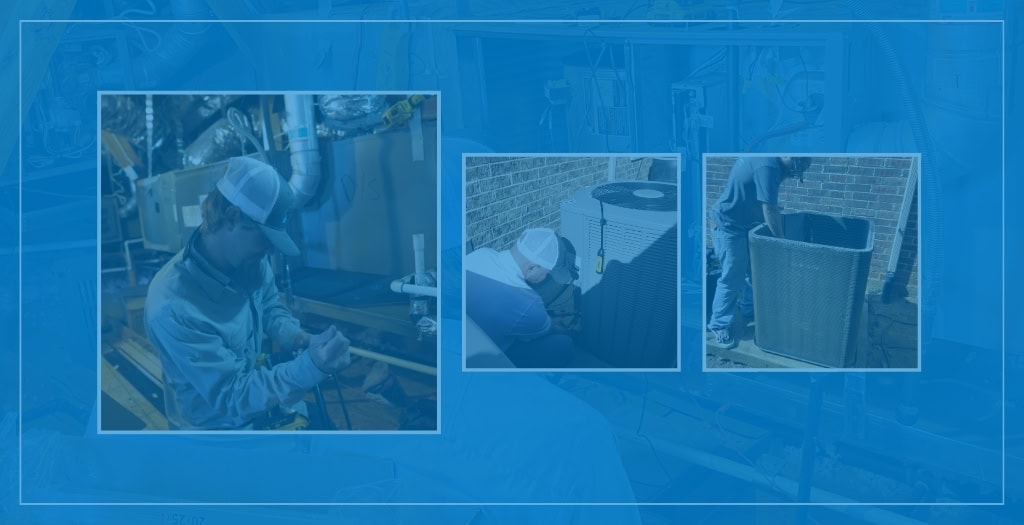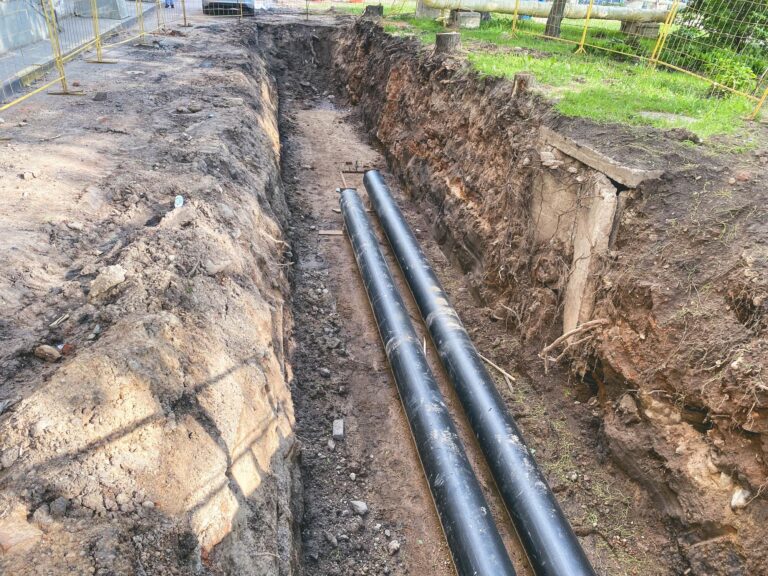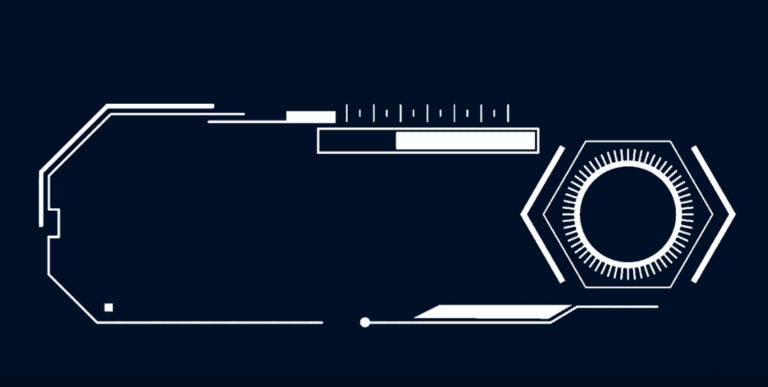AC Replacement vs. Repair: Which Is Right for Your Home in Dallas?
When the Dallas summer heat hits 100°F and your AC struggles, one question always comes up:
Should you repair the unit or replace it altogether?
Most homeowners assume that once an air conditioner hits 10 years, it needs to be replaced. That is not always the case. The real decision depends on three key factors that HVAC companies rarely explain upfront: repair cost, system efficiency, and how long you plan to stay in your home.
If you get this choice wrong, you risk wasting thousands of dollars on an unnecessary replacement or pouring money into endless repairs.
This guide gives Dallas–Fort Worth homeowners a clear framework to make the right call.
The Real Cost of Confusion
Many families still follow the outdated “10-year rule,” which suggests replacing any AC once it crosses a decade. In reality:
- A well-maintained system can keep running for 15 years or more in Dallas.
- A poorly maintained unit can fail in as little as 7 years.
The cost of confusion shows up in two ways:
- Paying for an early replacement when a repair would have worked just fine.
- Spending on repeated repairs for a unit that should have been replaced already.
The solution is to move away from myths and use a simple decision-making framework.
When AC Repair Makes Perfect Sense
The 50% Rule
Experts often suggest the 50% rule.
- If the repair cost is less than half of the replacement cost, repair usually makes sense.
- If it is more than half, replacement is the smarter move.
Example: - Repair = $1,200
- New system = $7,000
- Since $1,200 is less than 20% of replacement cost, repair is the better option.
- Dallas Climate Matters
- Dallas summers average highs of 95°F or more for weeks. That kind of heat puts extreme stress on cooling systems. The good news? Regular maintenance like coil cleaning, refrigerant checks, and filter replacements can add 3–5 extra years of life to your AC. Even older systems can stay reliable with proper HVAC service.
Clear Signs You Should Replace Your AC
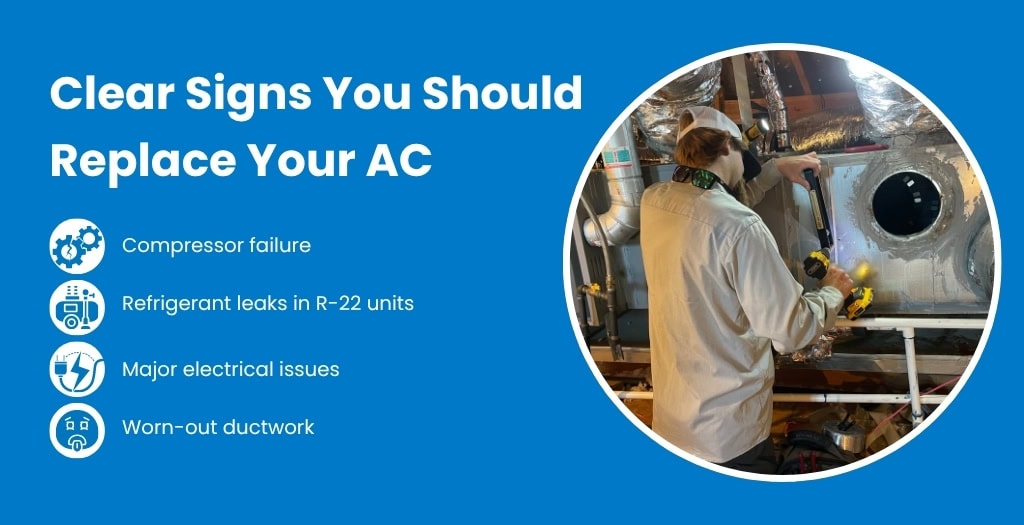
There are situations where repair is not cost-effective. Watch for the Fatal Four warning signs:
- Compressor failure – Replacing it often costs nearly as much as a new unit.
- Refrigerant leaks in R-22 units – R-22 has been phased out, making refills extremely expensive.
- Major electrical issues – Frequent wiring or circuit problems point to system-wide failure.
- Worn-out ductwork – If ducts are damaged, your AC loses efficiency no matter how many repairs are done.
Energy Efficiency: The Hidden Cost Factor
Electricity in Dallas runs about 13 to 14 cents per kWh. Older 15-SEER systems can cost 30% more to operate than new 20-SEER models. That difference can add up to hundreds of dollars each year. For many homeowners, a high-efficiency replacement pays for itself in 3–5 years.
A 5-Step Decision Framework for Homeowners
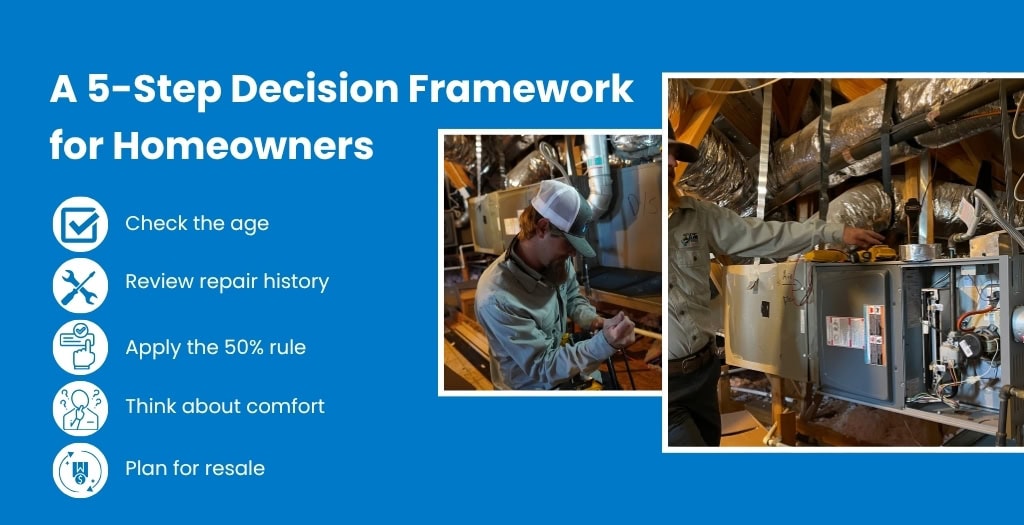
Use this checklist to make your decision clear:
- Check the age – Units under 10 years usually favor repair unless a Fatal Four issue is present.
- Review repair history – If you are calling every season, it is time to replace.
- Apply the 50% rule – Compare repair vs. replacement costs.
- Think about comfort – If your AC cannot keep up with Dallas summers, reliability matters more than repair savings.
- Plan for resale – If you are moving in 1–3 years, a new system can boost home value.
Dallas Specific Factors You Should Know
Local Climate
Dallas brings heat, dust, and humidity. Dust clogs coils and filters while humidity puts stress on compressors. These conditions shorten the lifespan of AC units faster than in cooler regions.
Best Time to Replace
Summer is the busiest and most expensive season for HVAC work. Spring and fall are better times to book a replacement or major repair. Contractors have more availability and often offer seasonal discounts.
Making the Right Choice https://www.crplumbingdfw.com/air-conditioning-repair/
Choosing between AC replacement and repair is not about following outdated rules. It is about running the numbers, considering comfort, and weighing Dallas-specific conditions.
- Repair makes sense when costs are small and the unit has years of life left.
- Replacement is smarter when efficiency drops, major failures appear, or repair costs pile up.
By applying this framework, Dallas homeowners can save money, avoid stress, and keep their homes cool even during the hottest Texas summers.
Need expert help?
Schedule your AC inspection with a trusted Dallas HVAC team today and get a clear, honest recommendation tailored to your home.


